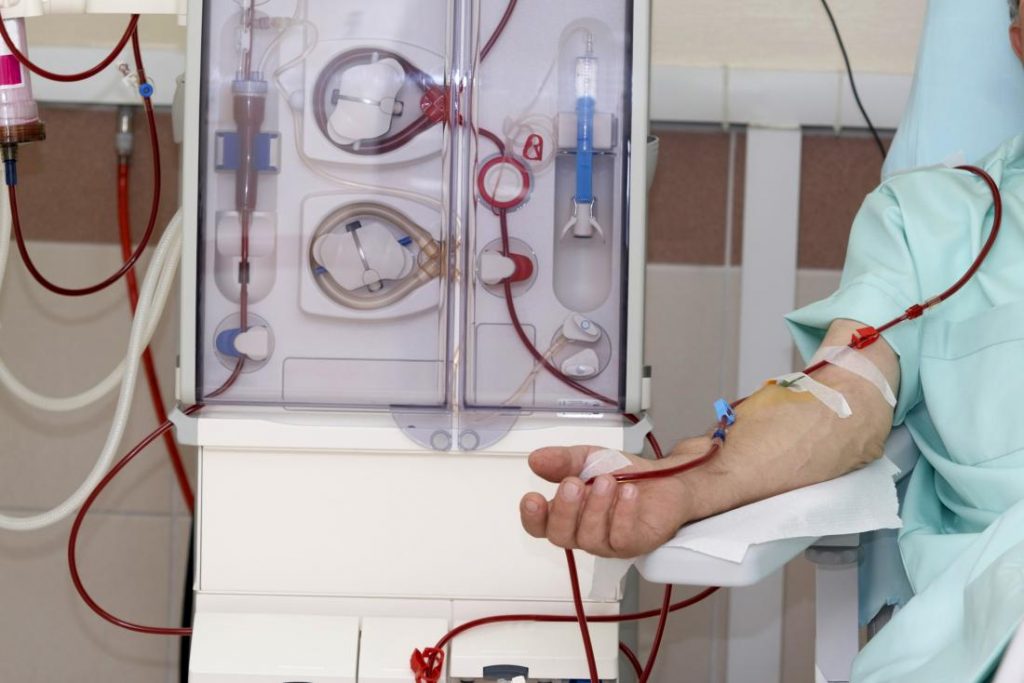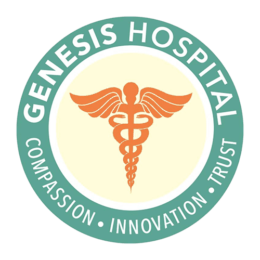The most critical stage of kidney disease is kidney failure (renal failure). The problem is sometimes transient and emerges quickly (acute). Contrarily, it is a chronic (long-term) medical condition that worsens gradually. In any case, it is fatal if not treated timely. However, if anyone has kidney failure, they can visit Genesis, the best dialysis center in Gurgaon. Our skilled doctors provide advanced dialysis services with complete confidence to their patients. While most hospitals charge exorbitant fees for dialysis, we assure a cost-effective dialysis process with our services. Read on to gain comprehensive information about dialysis treatments and their significance.
What are dialysis treatments?
When kidneys fail, they can not filter blood as efficiently as the body needs to function. Consequently, toxic substances accumulate in your bloodstream and cause complications. Dialysis is the standard treatment to eliminate waste products and excessive fluid from the blood when the kidneys don’t work as required. The process involves redirecting blood to a cleaning machine and subsequent transfusions. In our dialysis center in Gurgaon, we provide top-notch medical services compatible with international standards. We ensure the complete hygiene and safety of all patients.

A kidney transplant is another option for treating kidney failure, but it is not always possible to perform the procedure promptly. Hence, dialysis is necessary until a suitable kidney donor is available. In cases wherein a kidney transplant is not a choice (such as if you are not healthy and fit for a major operation), you may need to undergo dialysis for life long. For guidance, visit our patient-centric hospital at Sector -84, New Gurgaon (Opp Dps School) Haryana 122004.
Types of dialysis
The human anatomy has two bean-shaped organs, known as kidneys. They rest beneath the rib cage on each side of the spine in our body. They function to remove toxins from your bloodstream and substitute them with filtered nutrient-rich blood. However, medical conditions like lupus, diabetes, and high blood pressure may cause kidney disorders. If anyone is diagnosed with ESRD (end-stage renal disease) or kidney failure, they have to undergo dialysis treatment temporarily or permanently. This dialysis is primarily of two kinds- hemodialysis and peritoneal. Here’s a discussion on both sides of these dialysis treatments.1. Hemodialysis

The most popular form of dialysis is hemodialysis. This treatment involves using a hemodialyzer (artificial kidney) to alleviate your kidney disorder. The artificial kidney removes the blood from the body and helps in its filtration. Your doctor will then use a dialysis machine to help the body receive the purified blood back. Generally, doctors perform surgery to make a vascular access point (entrance point) into your blood vessels so that blood flows to the artificial kidney. The three types of entrance points needed before commencing regular hemodialysis treatments are as follows:
a . Fistula AV (arterial-venous)
This preferable option connects a selected artery and a vein directly.
B . AV graft
It joins the artery and vein indirectly via a tube and graft.
C. Vascular access catheter
It is likely to be inserted into a large vein in the neck.
The AV fistula and AV graft are vascular access points created surgically for long-term dialysis treatments. Patients with AV fistulas heal fast and require hemodialysis after two to three months. However, after receiving AV grafts, patients are ready in two to three weeks. On the contrary, catheters work for temporary or short-term use.
Hemodialysis treatments are usually three to five hours long, and patients can undergo this dialysis process thrice a week. You can get hemodialysis at our reputable dialysis center in Gurgaon and ask the doctor to complete it in shorter, more frequent sessions. Our medical professionals will tailor-make the treatment depending on your current state of health.
2. Peritoneal dialysis
Peritoneal dialysis is a surgical procedure that involves implanting a peritoneal dialysis (PD) catheter into your abdomen. The catheter assists in filtering blood through the peritoneum, a membrane in your belly. Doctors inject dialysate, a special fluid, into the peritoneum for waste absorption during the treatment. Once dialysate removes waste from the bloodstream, the next step is to drain it from your abdomen. This dialysis process takes a few hours to complete and requires a repetition of four to six times daily.

Fluid exchange in the treatment is possible while you’re sleeping or awake. Peritoneal dialysis comes in many forms, but the principal ones are:
A. Continuous ambulatory peritoneal dialysis (CAPD)
It involves injecting dialysate into your abdomen, letting it dwell there for a prescribed time, and draining the fluid. This CAPD technique requires three to five awake exchanges and does not require a machine.
B. Continuous cycling peritoneal dialysis (CCPD)
This method uses an automated cycler machine that runs many exchanges while you sleep at night. The dialysate from the CCPD machine automatically fills your abdomen, stays there, and drains it into a sterile bag that you empty in the morning.
C. Intermittent peritoneal dialysis (IPD)
Like other peritoneal dialysis methods, IPD treatment involves filling the abdomen with dialysate and drawing it back out of your body for disposal. It is a hospital-based lengthy process that uses the same equipment as CCPD.
The effectiveness of peritoneal dialysis in removing wastes and excess fluid from your blood depends on several factors, including:
- Your body size
- Overall speed at which your peritoneum filters waste
- Amount of dialysate used
- Frequency of daily exchanges
- Duration of dwell times
- Sugar concentration present in the dialysis solution
Consult our specialists at the dialysis center in Gurgaon to customize your treatment according to routine. The doctor will consider your medical condition, lifestyle, and personal preferences to determine the best exchange method.
Finding a good dialysis center in Gurgaon
Fortunately, kidney problems don’t always last forever. While your kidneys are healing and regaining their ability to function, dialysis can temporarily replace their role. The kidneys rarely recover from chronic kidney disease, but survival rates of people on dialysis are showing improvement. Though dialysis can only partially restore lost kidney function, most patients can continue receiving it for many years. The effects of having dysfunctional kidneys and regular dialysis can be severe. Find the top dialysis center in Gurgaon if you suffer from this condition.
At Genesis Hospital, we assure best dialysis services. Our top-notch medical staff is proficient enough to offer patients individualized care and support. Our healthcare providers use state-of-the-art medical equipment and advanced techniques.

